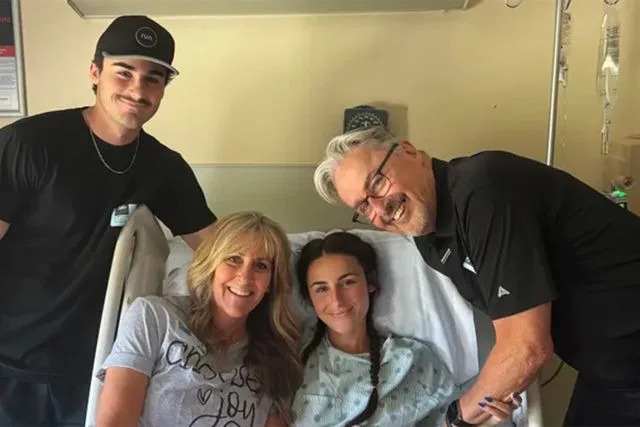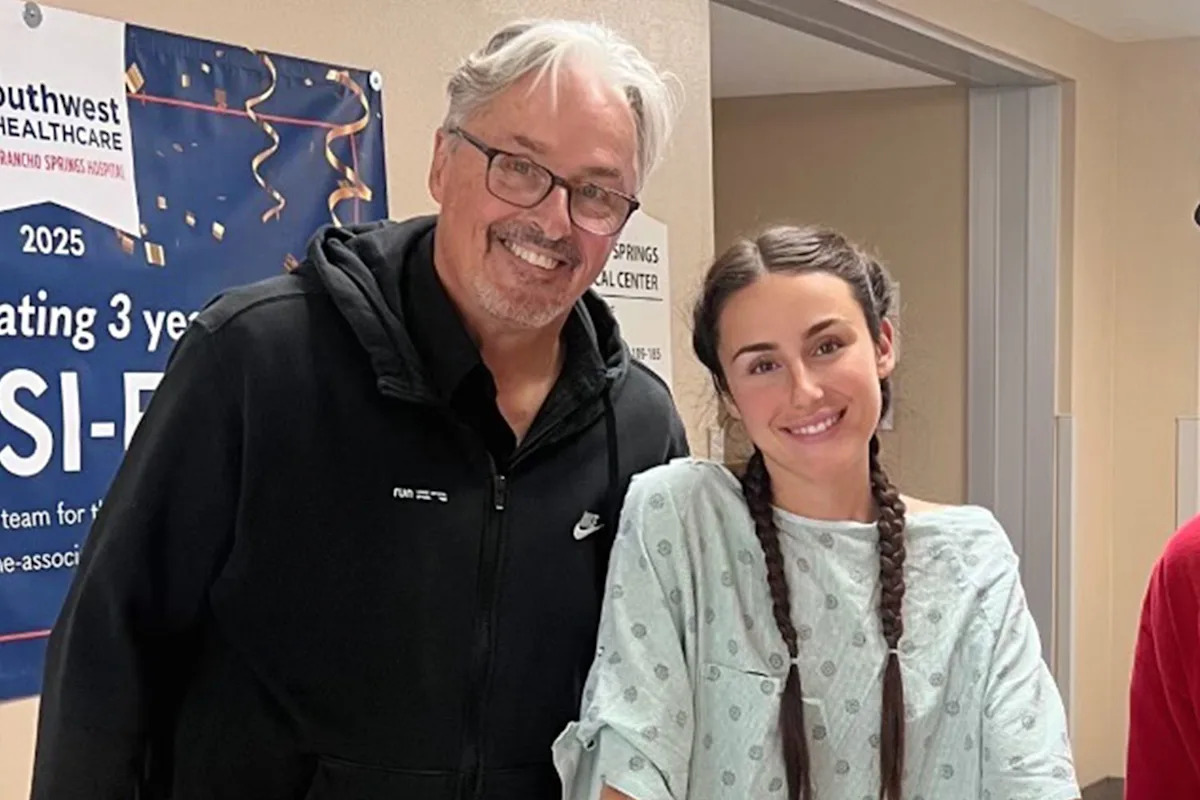NEED TO KNOW
Meagan Meadows, a 24-year-old teacher, was diagnosed with stage 3 colon cancer after she had one symptom
She discovered blood in her stool, and quickly received tests, scans and a biopsy, which revealed the cancer was spreading to her lymph nodes
She admits that when she saw the bloody stool, she could have “easily [written] it off as something else”
A 24-year-old teacher was diagnosed with stage 3 colon cancer, and she says she nearly missed the one symptom that she experienced: blood in her stool. Now, she’s advocating for young people to pay attention to symptoms like these.
Meagan Meadows, a Southern California student teacher, went to the bathroom when she noticed a small amount of blood, she told Business Insider. She assumed it was something related to her diet, stress or even hemorrhoids. However, she confided in a few of her friends about what had happened, and they urged her to see a doctor.
Once she went to the doctor, she underwent tests and scans that all came back mostly normal except for the findings that her intestinal wall was thickened, which is typically caused by a lack of fiber or dehydration. She was recommended to get a colonoscopy.
She almost canceled her appointment because she thought “there’s no way I have anything going on,” she said. “I felt so embarrassed because clearly I was fine.”
Ultimately, the procedure uncovered a walnut-sized tumor in her colon. A biopsy later confirmed it was cancer. More tests then revealed the cancer had spread to the surrounding lymph nodes, meaning she was given a stage 3 diagnosis.
The young woman was stunned by the news, telling Business Insider that “it was difficult to process.”

She told the outlet that the blood in her stool was not only her single symptom, but it wasn’t severe. Explaining that there was no blood visible in the toilet or on the toilet paper.
“It wasn’t in concerning amounts; it wasn’t there every time. I almost never noticed it there,” she said. “I easily wrote it off as something else.”
“I had an image in my head that blood in the stool would mean the bowl was just red,” she said. Confessing that speaking publicly about it has been “a pretty vulnerable thing.”
“Obviously, no one wants to talk about their poop,” she said. “But it’s always better to get checked.”
Since her diagnosis, Meadows has utilized her parents’ health insurance plan, which has covered surgery and chemotherapy. Due to the effects of her treatment, her fertility can be affected and she had to quickly decide if she wanted to have expensive fertility preservation treatment.
However, the treatment is out-of-pocket and is estimated to cost $10,000.
“I went from being a normal 24-year-old to now having to plan for something I wasn’t even considering for years,” she said. “I didn’t expect I’d have to try to protect that at this age.”
“The whole thing is so surreal,” she said.
Never miss a story — sign up for PEOPLE’s free daily newsletter to stay up-to-date on the best of what PEOPLE has to offer, from celebrity news to compelling human interest stories.
Due to the unexpected medical fees and her inability to work in schools because of her diagnosis, her friend created a GoFundMe to help raise money for her treatment.
“Chemo definitely takes a toll on you, mentally and physically. And it’s hard knowing that there’s not a 100% chance that won’t come back,” she said. “I’m just taking it one day at a time and trying to enjoy what I can.”
During her chemotherapy, she’s been surrounded by her family, friends, boyfriend and newly adopted cocker spaniel mix puppy, Hughes. “If I didn’t have him, there would be days I didn’t leave the house,” she said.
Throughout the treatment, she’s posted about her treatment and journey to TikTok in an attempt to have other young people get checked.
“If I would have known that so many young people were getting diagnosed with colon cancer, I would have taken the symptom more seriously,” she said.
Meadows’ sole symptom is the most common one for people under 50 with colon cancer, per the MD Anderson Cancer Center. Other symptoms include abdominal pain, changes to bathroom habits, bloated stomach, unexplained weight loss, vomiting and fatigue and feeling short of breath, per the Cleveland Clinic.
Read the original article on People

